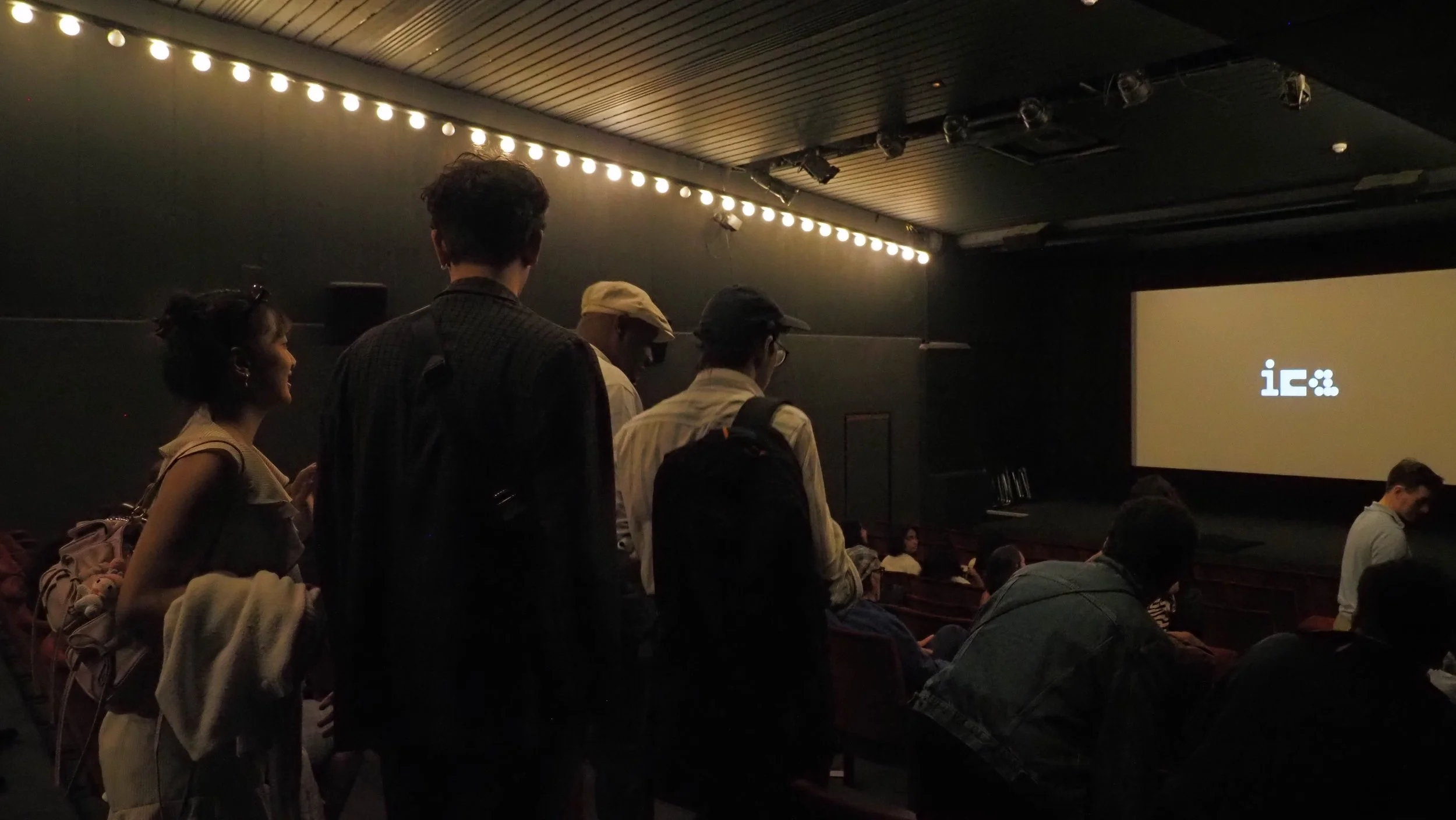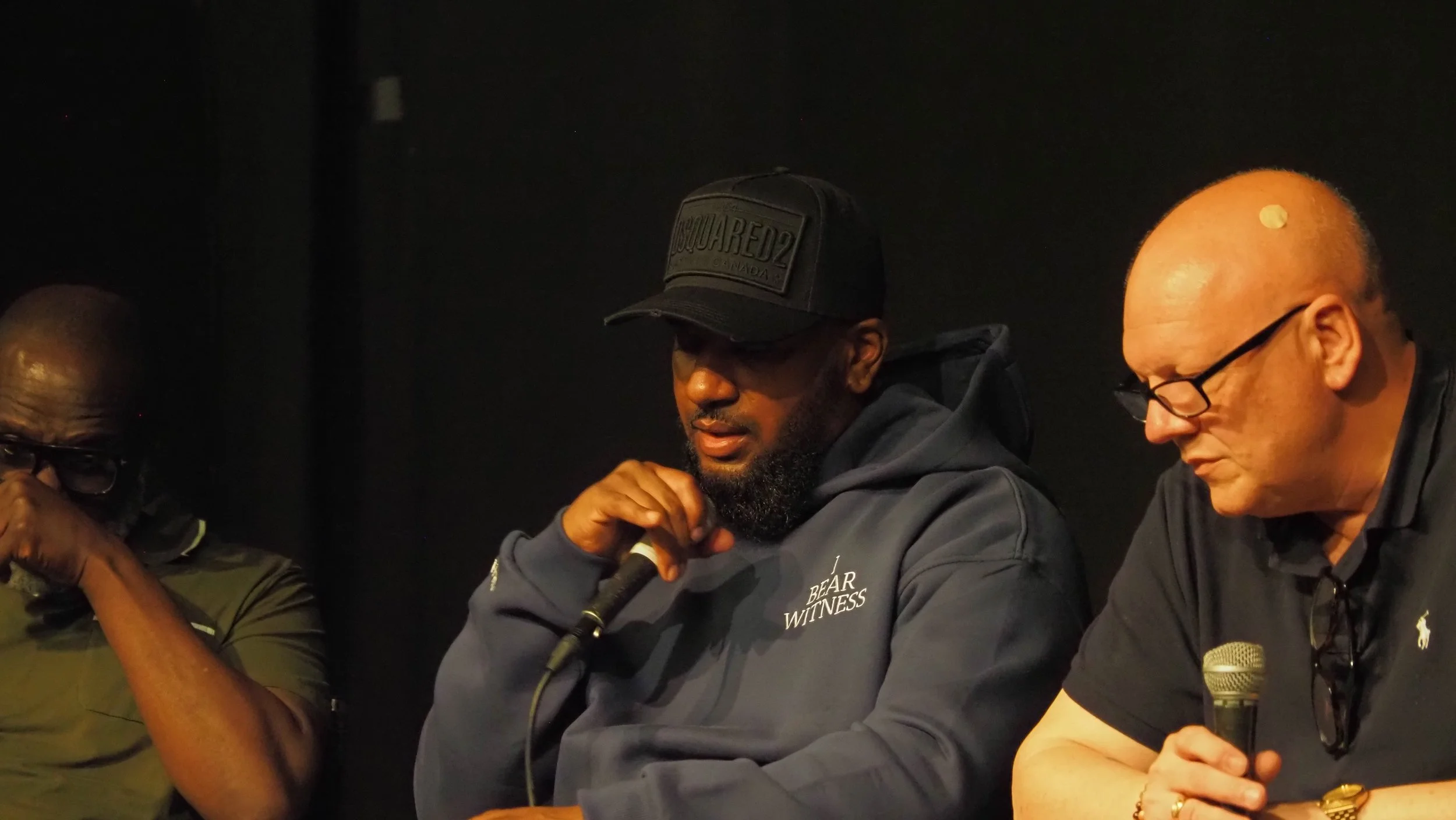Beyond the Headlines: A Review of The Hard Stop and the Death of Mark Duggan
We live in a world where those who make the loudest noise — or carry the most influence — can often paint whatever narrative they want.
They say there are two sides to every story. The powerful documentary The Hard Stop explores the life and death of Mark Duggan — a father, brother, and friend. It tells a story of loved ones who feel ignored and neglected and it highlights a broken system that breeds hatred, distrust, and ultimately, a failure of justice. The 2015 British documentary film The Hard Stop, written and produced by George Amponsah and Dionne Walker, begs the question: what does death in police custody really look like? What happens when due process isn't followed? What is the difference between disarming and killing — and what happens when justice isn’t truly served?
In 2011, Mark Duggan, a young Black man, lost his life at the hands of the Metropolitan Police in Tottenham, North London, during a "hard stop" — a high-risk operation where officers pulled out in front of Duggan's speeding cab, prepared for confrontation with the armed passenger. In 2014, a jury found that the officer who shot Mark Duggan account of the shooting in which he said Duggan had had a gun in his hand, was wrong. In the documentary, we see the journey of Mark’s two distraught best friends, Marcus Knox-Hooke and Kurtis Henvilleth, who navigate life over 24 months leading up to the 2012 verdict, which concluded that Duggan had been "lawfully killed."
An Opportunity Lost
The documentary really highlights the power of the media — and how those who control the narrative can shape public perception, often leaving the real story untold. I remember being 15 at the time, watching the news as a peaceful protest — originally meant to question the police's handling of the situation — spiraled into several days of rioting that spread across London and beyond, becoming the greatest civil disturbance in recent British history. News headlines were dominated by riot coverage: horrific images of burning buildings, civilians being attacked and fear and sadness gripping communities. But what was quickly pushed to the wayside was the root of it all — the pain and outrage of a family who had just lost a father, brother and friend in a deeply controversial police killing.
The way in which Mark Duggan was killed needed to be questioned and should have remained a topic of discussion because throughout history, what’s perceived as a “threat” is often exaggerated, especially when it involves people of colour. This was a real opportunity to reflect on policing systems, to explore what disarming someone could look like and to acknowledge that when due process isn’t followed, the consequences are often dire.
That opportunity was lost. Instead, the media focused almost entirely on the aftermath, rather than addressing the root cause.
Problems Of The Past
Context is everything. To truly understand a situation, we often have to look back and examine the past to make sense of the present. The documentary explores the impact of stereotyping and how our own biases can shape perceptions of threat. Mark Duggan came from an estate called Broadwater Farm — an estate that notoriously was the scene of a 1985 riot triggered by tensions between the police and local Black people.
During the 1985 Broadwater Farm riots in Tottenham, North London, PC Keith Blakelock was murdered. He was a London Metropolitan Police constable and was stabbed to death during the unrest. The riots were sparked by the death of Cynthia Jarrett, an Afro-Caribbean woman who died during a police search. She had a son named Floyd who was falsely arrested, leading to the police raid on her home. The aftermath of the riot led to years of heavy-handed policing in Tottenham. Naturally, the tragic death of a member of the community and the stabbing of a police officer caused deep upset. These events allowed tension to linger, breeding frustration and distrust — emotions that became the language of those most affected.
Understanding this history of Broadwater Farm is key to this story, as it reveals the ripple effects of how frustration can build up years later and spiral into actions that can’t be undone. This history highlights so many underlying issues — from malpractice and the importance of due diligence to the devastating consequences when a life is lost. Fast forward to 2011 — when you're known for being from a particular area, especially one where your very presence is met with suspicion or disdain by the police, the odds are always stacked against you. As one community member in the documentary puts it, “every Black kid was paying the price of PC Blacklock, the youth from that estate have no chance; they’ll almost always be targets simply because of where they're from and risk being persecuted for past sins”. This story highlights the dangers of stereotyping and how preconceived notions can lead to devastating outcomes.
Broken Systems
One part of the documentary that really stood out to me was the story of Mark’s best friend, Kurtis Henvilleth, who was trying to rebuild his life after the killing. We see him struggling to find work and make ends meet. In one scene, he parks beside a Carphone Warehouse just to use the building’s Wi-Fi so he can check his emails.
On one occasion, the Wi-Fi was down, so he asked an employee when it would be back up and whether there were any jobs available. The employee told him he’d need to apply online. That moment really highlighted the issue of internet poverty and how easily people in the community can be left behind if they don’t have basic digital access. It also exposed a system that makes it incredibly hard for people from disadvantaged backgrounds — especially those who have been to prison or are trying to leave street life behind — to break the cycle. In a society that moves so fast, if you can’t keep up, you risk being left behind.
Despite this, Kurtis perseveres. He keeps applying for jobs and eventually lands one - but it’s 118 miles away in Norwich. We see him commuting weekly from London and later he admits that it’s affected his family life. His absence at home is a double-edged sword: he needs to provide for his children, but he also wants to be there as a present father.
That part really made me reflect on the kind of society we’re creating — one where even when people are trying to do the right thing, the barriers can feel endless. It showed me how vital it is that opportunities are made accessible to everyone. We all face setbacks in life and we all deserve the chance to get back on the right path. Had Kurtis not been so strong-willed, it would have been easy to see how the streets could have pulled him back in.
When boys are raised without fathers
When someone dies, it’s the family that bears the brunt of the trauma.
Navigating death is incredibly painful and difficult — grief feels like a rollercoaster with no clear path. Mark Duggan's death left his family with countless unanswered questions. Why was an unarmed man killed? It’s one thing to process the loss of a loved one, but to also carry the weight of how they died adds another layer of pain. The family was left with no closure. Losing a father can have a deep and lasting impact — especially on children. Fathers play such a vital role in the family structure and when boys grow up without that presence, it can leave a huge, unfillable hole. The documentary shows Mark’s son trying to navigate the tragedy, while his best friend Marcus shares how there were times when the boy became troubled and was even excluded from school. That kind of reaction is natural for someone so young who’s lost a parent. It showed the ripple effect — the real consequences of what happens when a father is taken away from his child.
To the police, Mark was just a suspect. But to his loved ones, he was a man with a story: a father, a friend, someone with a past, a presence, and a future. He had already impacted many lives and was yet to make a lasting impact on his son’s. But in that critical moment, when he was seen as a threat, biases took over — and who he was, or what he was leaving behind, didn’t seem to matter.
Foresight matters. Life demands long-term thinking, especially from those in positions of power. A split-second decision not only ended one life, but completely altered the course of many others. Mark’s son, Kemani Tutti Kane Duggan, is currently serving a 5 year prison sentence.
Lawful, But Not Just
Mark Duggan’s death was ruled a lawful killing. To his family, justice was never served. For the producers of The Hard Stop, this raised serious concerns about the justice system and how cases like this are handled. In a Q&A, George Amponsah one of the filmmakers pointed out that in Northern Ireland, a hard stop procedure has never resulted in a death.
This invites deeper questions: Does more training need to be done to help officers assess threats more accurately — and unpack their own biases? Why was it acceptable for Mark to be killed rather than arrested? What happens when justice isn’t served? When tensions go unaddressed and biases remain unchecked, does it create space for history to repeat itself? How can we hold the media more accountable? Does everyone deserve a second chance? And what are the consequences when power is misused?



